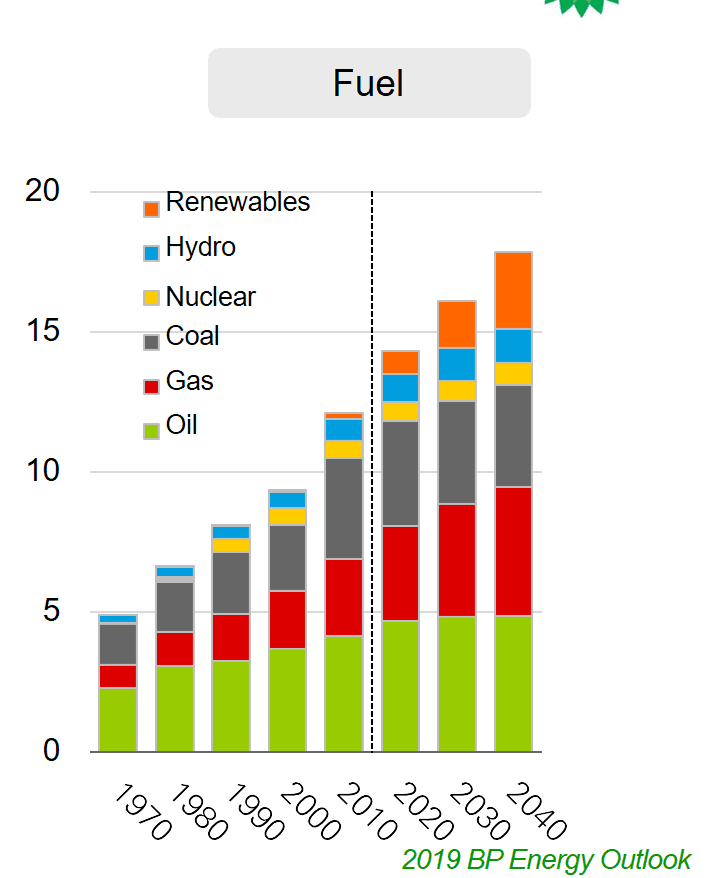BP today released the 68th edition of World Energy’s BP Statistical Review (BP Statistics Review), the most comprehensive collection and analysis of global energy data. Mos draws attention as it recognizes that the use of carbon increases globally.
Key findings from the BP 2019 Statistics Review include:
- Global energy demand grew by 2.9% and carbon emissions increased by 2.0% in 2018, faster than at any time since 2010-11.
- Natural gas consumption and production increased by more than 5%, one of the strongest growth rates for demand and production in more than 30 years.
- Renewable energy grew by 14.5%, reaching its record increase in 2017, but this accounted for only about a third of the increase in total power generation.
- Coal consumption (+ 1.4%) and production (+ 4.3%) increased for the second consecutive year in 2018, after three years of decline (2014-16).
- The United States recorded the largest annual production increases in all countries, for both oil and natural gas, the vast majority of increases came from onshore lutite layers.
Energy basket composition

The increase in natural gas is ineffable, especially in developed countries. In developing countries, carbon is a fuel that moves development.
CO2 emissions and increased coal use
Introducing the findings for 2018, Spencer Dale, BP’s chief economist, said: “There is a growing mismatch between society’s demands for action on climate change and the real pace of progress, with energy demand and emissions of carbon growing at its fastest pace for years. The world is on an unsustainable path.”
“The longer carbon emissions continue to increase, the more difficult and costly the possible adjustment to zero net carbon emissions will be,” concluded Bob Dudley, CHIEF Executive Officer of BP Group. “As I said before, this is not a race to renewable energy, but a race to reduce carbon emissions on many fronts.”
In our view, the business reality with regard to Climate Change is given by economic reality. coal use increases and is not a sin and in many cases it is a necessity to meet the price competitiveness that customers request. That is why globally coal use increases.
Energy Efficiency
On the other hand, the increase in energy demand per person is relevant in the 2040 projection. partly offset by energy efficiency strategies.

That’s why our line of research for efficient and environmentally friendly coal use takes on greater importance. Learn more…>>